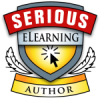The research is definitive: properly used, audience response techniques and solutions enable educators and trainers to achieve startling improvements in learning outcomes with their classes. Is this surprising?
It shouldn’t be. Only by adopting these solutions can educators (and the group as a whole) achieve instant, regular feedback on the class’ readiness and understanding of the topic. By having access to this, educators can tailor their work with the class to better suit the immediate learning needs. This fosters a teaching and learning experience based on “real time” formative assessment: it ensures the continuous participation of students and the the educator’s ability to respond instantly to learning opportunities.
[pullquote align=”right”]
“I continue to maintain this website because I am concerned that people sell and see audience response technology as a quick fix to maintain learner interest. While interest may be temporarily raised, if this is all you do with audience response technology, you are committing educational malpractice. The research report will give you a much deeper insight into the many ways that well-designed audience response learning can support deep and meaningful learning.”
Will Thalheimer[/pullquote]
Previous articles on this site have listed extensive on-line resources to assist adopters of these solutions, to achieve the rewards their audiences deserve. Today, we feature the latest from Dr Will Thalheimer, the long-respected instructional design expert and contemporary education blogger on education best-practice (www.willatworklearning.com). Will has just re-issued his ground-breaking 2003 tome “The Learning Benefits of Questions: Research to Practice.”
Among many other activities, Will also maintains AudienceResponseLearning.org, a web site dedicated to improving learning outcomes through audience response techniques. Visitors to that site will find his report Questioning Strategies for Audience Response Systems: How to Use Questions to Maximize Learning, Engagement, and Satisfaction. See why Will thinks you should read it (right)….

